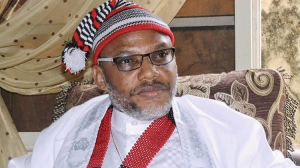Nigeria boasts one of the largest and most vibrant diasporas in the world, with significant populations residing in the United Kingdom and the United States. These communities include many individuals who have pursued legal education, either in Nigerian universities or abroad, yet face insurmountable barriers to completing their professional training. To qualify as a barrister or solicitor in Nigeria, graduates holding a Bachelor of Laws LL.B, degree must attend the Nigerian Law School for a mandatory one-year Bar Vocational Course, culminating in the Call to the Bar. However, for diaspora Nigerians, returning to Nigeria for this program is often impractical due to work commitments, family obligations, visa restrictions, and financial constraints.
This creates a bottleneck, leaving qualified law graduates in limbo and depriving Nigeria of their potential contributions to its legal system. Establishing branches of the Nigerian Law School in the UK and USA would address this gap, enabling these individuals to complete their training locally while maintaining the high standards of the Nigerian legal profession. This essay argues that such an initiative is not only feasible but essential for empowering the diaspora, enhancing legal diversity, and fostering stronger ties between Nigeria and its global communities.
The Nigerian diaspora in the UK and USA is substantial and growing rapidly, representing a reservoir of educated professionals, including many with legal backgrounds. In the UK, the Nigerian-born population has nearly doubled in recent decades, with estimates from the 2011 Census placing it at around 191,000, and more recent data indicating significant inflows—such as 52,000 migrants in 2024 alone. Another report highlights 120,000 Nigerians moving to the UK in the year ending June 2024, underscoring the community’s expansion. In the USA, the figures are even larger: the 2022 American Community Survey estimated 712,000 residents of Nigerian ancestry, with approximately 448,400 Nigerian-born immigrants. These populations are often highly educated, with many having studied law at Nigerian universities before migrating or pursuing degrees in host countries.
While precise numbers of diaspora law graduates are elusive, indicators point to a significant cohort. For instance, UK universities like the University of Birmingham host over 70 Nigerian law students annually, and institutions such as the University of Southampton note that Nigerian graduates often return home for Bar exams but face hurdles in doing so. The UK remains a top destination for Nigerian law students, with several universities tailored to their needs. In the USA, similar patterns emerge, with Nigerian immigrants pursuing advanced legal studies but limited by the need to attend the Nigerian Law School in person. Nigeria’s legal education system produces thousands of LL.B graduates yearly, and with a diaspora of over 17 million globally, including substantial numbers in the UK and USA, it’s reasonable to infer hundreds, if not thousands, of law-educated Nigerians abroad are stalled in their careers. This untapped talent pool represents lost opportunities for both individuals and Nigeria’s legal sector, which already comprises around 70,000 practicing lawyers, the largest in Africa.
The primary obstacle for diaspora law graduates is the requirement to physically attend the Nigerian Law School’s campuses in Nigeria, a process that demands a full-year commitment away from established lives abroad. Economic hardships exacerbate this, with recent tuition fee increases drawing protests from prospective students who cite financial constraints as a major barrier. For those in the diaspora, additional costs include international travel, accommodation, and potential loss of income from jobs in the UK or USA. Visa issues further complicate matters: securing a Nigerian visa for an extended stay can be challenging, especially for those with permanent residency or citizenship abroad, and returning to host countries afterward may involve re-entry hurdles amid tightening immigration policies.
Family and professional obligations add layers of difficulty. Many diaspora Nigerians are settled with spouses, children, and careers, making a year-long relocation disruptive. Reports highlight backlogs in university admissions and Law School slots, delaying entry and prolonging uncertainty. The stressful environment of the Law School itself, as shared by students, deters those who cannot afford the emotional and logistical toll. For graduates from non-traditional programs, like those from the National Open University of Nigeria (NOUN), additional “strange conditions” for admission create further inequities. These challenges contribute to the “Japa” phenomenon, mass emigration of professionals, including lawyers who often abandon Nigerian legal practice altogether, opting instead for requalification in host countries or non-legal careers. Without accessible alternatives, Nigeria risks losing these skilled individuals to foreign bars or unrelated fields.
Creating Nigerian Law School branches in the UK and USA would yield multifaceted benefits. For individuals, it would democratize access to the Bar, allowing them to train locally without uprooting their lives. This could increase the number of qualified Nigerian lawyers, who might then practice in Nigeria, the diaspora, or internationally, enhancing legal services for Nigerian communities abroad. Economically, these professionals could contribute through remittances and knowledge transfer, bolstering Nigeria’s economy already supported by a diaspora that remits billions annually.
On a broader scale, such branches would strengthen the Nigerian legal profession by maintaining a unified standard while expanding capacity. Nigeria has already demonstrated scalability by increasing Law School campuses from one to seven within its borders, graduating over 180,000 lawyers to date. Extending this model abroad would align with calls for reform, such as deregulating legal education to include private or international providers. It could also foster diaspora engagement, encouraging return migration or collaborations that address Nigeria’s legal challenges, from corporate law to human rights.
Moreover, overseas branches would promote cultural and legal exchange. Diaspora lawyers, trained in Nigerian jurisprudence but exposed to UK common law or US constitutional systems, could bridge gaps in international practice, benefiting multinational firms and global disputes involving Nigeria.
The proposal is feasible, drawing on existing precedents in international legal education. Nigeria’s Council of Legal Education has shown willingness to expand, with recent approvals for additional domestic campuses and discussions on accommodating foreign graduates. Internationally, the American Bar Association (ABA) accredits foreign study programs, allowing US law schools to offer semesters abroad and grant credits for overseas studies, provided they meet quality criteria. US firms like Baker & McKenzie have established branches in dozens of countries, demonstrating how legal entities can operate transnationally. Partnerships with UK and US universities many of which already host Nigerian students could facilitate logistics, such as shared facilities and faculty exchanges.
To ensure standards, branches could adopt a hybrid model: core in-person training with online components for flexibility, under centralized oversight from Nigeria. This aligns with global trends toward internationalized legal education, where schools coordinate diverse offerings to meet evolving needs.
The establishment of Nigerian Law School branches in the UK and USA is a pragmatic response to the realities of a globalised diaspora. By addressing barriers like travel and cost, it would unlock the potential of thousands of law graduates, enrich Nigeria’s legal landscape, and deepen international ties. With precedents in educational expansion and Nigeria’s own campus growth, the time is ripe for action. Policymakers, including the Council of Legal Education and diaspora organisations, should prioritise this initiative to transform a systemic shortfall into a strategic advantage. In doing so, Nigeria can reaffirm its commitment to its people, wherever they may be.






